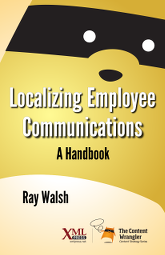The state of Colorado just passed a statute (House Bill 10-1193 (PDF)) that is targeted at out-of-state retailers who sell into Colorado. It is an attempt to improve collection of sales and use taxes (which residents owe on purchases, even if the retailer is from out of state and does not collect those taxes). Amazon and some other out-of-state retailers have responded by eliminating their affiliate programs for members in Colorado.
CAVEAT: I Am Not A Lawyer. If this law might affect you, talk to lawyer and do not rely on my speculation. If you are a lawyer and you see something here that is incorrect, please post a comment and I will remove or repair the incorrect content. If you are interested in the gory details, here are a couple of links: LeverageSALT coverage and Affiliate Advocacy web site’s coverage. You could also look at the bill itself (see the link above), but be aware that it is dense and easy to misunderstand.
So, why am I bothering to write about this? It’s because of Amazon’s response. They have “fired” all of their Colorado Amazon Associates, terminating their affiliate accounts effective last Monday (March 8). As you might guess, there has been a fair amount of anger, speculation, and venting over this.
As far as I can tell (remember, I Am Not A Lawyer, so my speculation is worth about the same 2 cents as everyone else’s), there is no direct reason why the existence of affiliates changes Amazon’s obligation under this new law. In fact, there have been stories that say that the state removed provisions that targeted affiliates (unlike what has happened in other states that have targeted affiliate programs).
I think Amazon and other out-of-state retailers are in general trying to avoid two things:
- Collecting sales tax for states where they do not have a presence (“nexus” in tax lingo).
- Reporting out-of-state sales so that a state can go after purchasers for sales/use taxes
This law (yeah, yeah, IANAL) does not appear to change anything related to requirements for collecting sales taxes. It does explicitly add a reporting requirement, but that requirement does not appear to relate in any way to affiliates; it is for any company that sells to a Colorado resident.
So, why did Amazon “fire” its affiliates in Colorado?
I believe that Amazon “fired” its several thousand (I’ve heard there are about 4,200) Colorado affiliates at least in part to mobilize them to lobby the state to amend or repeal the statute. Even though it seems like the statute does not target affiliates, I suspect they are relying on the vagueness of the statute to obscure things enough that affiliates will direct their anger towards the state.
If that interpretation is correct, then the strategy is hardball, plain and simple, though it may turn out to be effective. While I’m angry, I have to admire their chutzpah, and have to admit that I might have been tempted to do the same thing in their shoes (though in the end I would be unwilling to play that kind of hardball with loyal affiliates (and customers), especially given the impact it will have on those who rely on affiliate referrals for significant income).
For XML Press, which is a Colorado-based company, the impact is small. We were an Amazon Associate, but referrals were a very small part of our business. What we have done is to replace our referral code with our authors’ codes (as long as they are not Coloradans). They get a little bonus, and Amazon doesn’t avoid paying the referral fees that would have gone to XML Press.





I recognize that Colorado is suffering from reduced tax revenues (I can’t think of a state that isn’t). I also understand that TABOR and other Colorado constitutional amendments hamstring the state to maneuver in economic downturns. However, HB 10-1192 and HB 10-1193 and ill-conceived at worst, and poorly timed at minimum. The brunt of these bills will have a far greater impact on small-to-medium sized Colorado businesses, which are the incubators for economic recovery.
I’m glad that you aren’t affected much. The reality is that highly trained professionals will provide long term economic stability. Raising taxes on these types of businesses at this time will likely do more harm. Very unfortunate.
I just got a message from a friend who was livid about this. So I did some research. I’m glad I found this page and am thrilled it has a Colorado connection. I’ve built several “virtual stores” for Coloradans and it’s really gotten simple. You can replace your Amazon store with freeware such as Joomla: and use paypal or other portals for billing. You can setup taxes with a few mouse clicks.
I was shocked by Amazons’ actions, but not so shocked when I read the bill. This corporation is trying to piss you off and blame some one else: “Mommy, Billy hit me (after I threw his G.I.Joe in the fireplace)” They could Easily comply. Instead they chose to create a tempest.
Ask your self: How many billions in taxes nationwide have Amazon and the like caused not to be collected? Could this income have helped the states in this time of economic downturn? Would this legislation even have happened if they had collected and distributed taxes?
The government is just a group of people too. I don’t like all politicians, but I know the roads don’t grow from the ground. The schools don’t exist for free. Police and firemen are not just generous souls who show up to work for nothing (although they do offer their lives for us in exchange for their salaries.)It’s getting to where the rhetoric against the government turns off people’s minds before they even question what they are being told. You may fear the government- but perhaps you should fear Corporations more. THEY are the ones controlling the media. They are the ones who now have all the rights of an individual- without the responsibility. They are the ones who want no government and no taxes.
There is an opportunity here: If Amazon doesn’t want Coloradans, we could create our own Amazon. The internet is open. Freeware exists for someone to create such a site here and offer a place for Colorado stores. If you wanted to be silly you could get Platte.com- for the river that feeds most of us.
The money then stays in Colorado. The tax goes to the state. And Amazon realizes that playing games with people can be a losing proposition for them.
I just received this email from about 50 Commission Junction Advertisers that I do affiliate marketing for. (CJ.com)
“Dear XXXXXX,
Due to the recent tax laws regarding nexus involving online affiliate publishers in the state of Colorado (legislation known as HB 10-1193) we will no longer be able to accept new publishers from Colorado into our affiliate program.
Additionally, we will be immediately terminating our relationship with any publishers located in Colorado that were already joined. We sincerely apologize for the abrupt interruption in the program if this affected your account directly. This, unfortunately, affects our ability to continue business with loyal publishers and we understand that we are losing valuable relationships due to these new laws.
If you are a publisher located in Colorado, your publisher account will be closed as of May 18, 2010, and we will no longer pay advertising fees for sales referrals after that date. All sales made prior to May 18, 2010 will be credited to you and paid out in accordance with our regular schedule on June 10, 2010. Please accept our apologies and we appreciate your understanding. Hopefully in the future, these laws will be reversed in order to keep the networks diversified and growing.
Kind Regards,
XXXXXX”
According to the state of Colorado, the law states that outside retailers have to notify the State of Colorado and the customer of what they spent, so that the state of Colorado can collect the money. It doesn’t make any difference if they have affiliates in the state or not, if they make any sales in the state, then they have to report the sale.
http://cclponline.org/pubfiles/Amazon%20fact%20sheet%203_9%20final.pdf